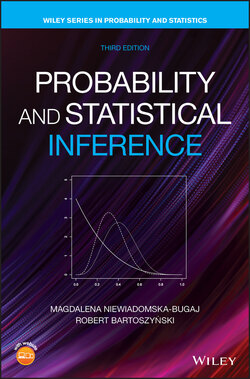Читать книгу Probability and Statistical Inference - Robert Bartoszynski - Страница 36
Example 1.17
ОглавлениеLet for odd and for even. The sequence is now so it is not monotone. We have here , since every point with belongs to infinitely many . On the other hand, . For we have if is large enough (and also for all ). However, if , then does not belong to any with even . Thus, , and the sequence does not converge.
Infinite operations on events play a very important role in the development of the theory, especially in determining limiting probabilities.
The definitions below will prepare the ground for the considerations in the following chapters. In Chapter 2, we will introduce probability as a number assigned to an event. Formally, we will be considering numerical functions defined on events, that is, on subsets of the sample space . As long as is finite or countably infinite, we can take the class of all subsets of as the domain of definition of probability. In case of infinite but not countable (e.g., where is an interval, the real line, or a plane), it may not be possible to define probability on the class of all subsets of . Although the explanation lies beyond the scope of this book, we will show how the difficulties can be avoided by suitable restriction of the class of subsets of that are taken as events. We begin with the concept of closure under some operation.
Definition 1.4.1 We say that the class of subsets of is closed under a given operation if the sets resulting from performing this operation on elements of are also elements of .
Complementation , finite union , infinite union , limits of sequences , are few examples of such operations.
